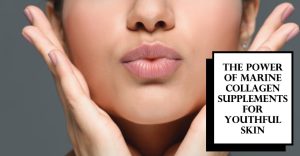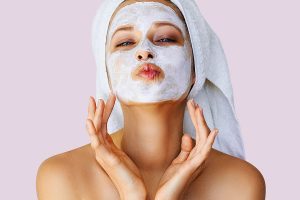Unlock the secret to youthful, radiant skin with a powerful ingredient that has taken the skincare world by storm: anti-ageing peptides! If you’re looking for a natural and effective way to combat signs of ageing, then peptides may just be your golden ticket. In this blog post, we’ll delve into the science behind these miraculous molecules and explore their role in achieving that coveted youthful glow. Get ready to discover the fascinating world of Anti-ageing peptides and revolutionize your skincare routine like never before!
What are peptides?
Peptides, the tiny but mighty heroes of skincare, are short chains of amino acids that play a vital role in maintaining the health and appearance of our skin. These small molecules act as messengers, delivering important signals to stimulate various processes within our bodies.
In the context of anti-ageing skincare, peptides work their magic by promoting collagen production. Collagen is a protein responsible for providing structure and elasticity to our skin. As we age, collagen production naturally declines, leading to fine lines, wrinkles, and sagging skin. That’s where peptides come in!
When applied topically or ingested orally through supplements, peptides can penetrate deep into the layers of your skin and send signals to your cells to amp up collagen synthesis. This boost in collagen levels helps improve skin firmness and reduce the appearance of wrinkles over time.
What makes peptides even more remarkable is their specificity. Different types of peptides target specific concerns such as improving hydration levels or reducing pigmentation issues like dark spots or uneven tone.
So how do these peptide superheroes fit into your skincare routine? Stay tuned as we explore ways you can incorporate them seamlessly into your daily regimen!
The role of peptides in anti-ageing
The role of peptides in anti-ageing is a topic that has gained significant attention in the skincare world. Peptides are small chains of amino acids, which are the building blocks of proteins. They play a crucial role in various biological processes, including collagen synthesis and cell communication.
One key way that peptides contribute to anti-ageing is by stimulating collagen production. Collagen is a protein that provides structure and elasticity to the skin. As we age, our natural collagen levels decline, leading to wrinkles and sagging skin. Peptides can help counteract this process by signaling the body to produce more collagen.
In addition to boosting collagen production, peptides also have antioxidant properties. This means they help protect the skin from damage caused by free radicals – unstable molecules that contribute to premature ageing.
Scientific studies have shown promising results when it comes to using peptides for anti-ageing purposes. For example, one study found that a peptide called Matrixyl stimulated significant increases in both collagen production and overall skin firmness.
There are different types of peptides used in skincare products, each with its own unique benefits for the skin. Some peptides target specific concerns like fine lines or dark spots, while others focus on improving overall texture and radiance.
To incorporate peptides into your skincare routine, look for products specifically formulated with these powerful ingredients. Serums or creams containing potent peptide blends can be applied morning and night after cleansing and toning your face.
When using peptide-based products, it’s essential to follow instructions carefully and be patient as results may take time to become noticeable. Consistency is key when it comes to reaping the full benefits of incorporating peptides into your daily skincare regimen.
While generally considered safe for most people, there are some potential side effects associated with using certain types of peptides. These can include irritation or allergic reactions if you have sensitive skin or if you’re using high concentrations without proper guidance from a dermatologist or aesthetician.
Peptides have emerged as a promising ingredient in the fight against ageing skin. Their
Scientific studies backing the use of peptides in skincare
Scientific studies have shown promising results when it comes to the use of peptides in skincare. These tiny protein fragments play a vital role in maintaining youthful skin and combating the signs of aging.
In one study published in the Journal of Cosmetic Dermatology, researchers found that a peptide called Matrixyl stimulated collagen synthesis, leading to firmer and smoother skin. Another study conducted by scientists at the University of Reading revealed that copper peptides improved overall skin appearance by enhancing elasticity and reducing fine lines.
Furthermore, research has demonstrated that certain peptides can inhibit enzymes responsible for breaking down collagen and elastin, which are essential for maintaining skin’s structure and elasticity. This helps to prevent premature aging and promote a more youthful complexion.
Additionally, clinical trials have shown that specific types of peptides possess antioxidant properties, protecting the skin from free radical damage caused by environmental factors such as pollution and UV radiation. These antioxidants help neutralize harmful molecules, preventing them from causing cellular damage and premature aging.
It is important to note that while scientific studies provide valuable evidence supporting the use of peptides in skincare, individual results may vary. It is always advisable to consult with a dermatologist or skincare professional before incorporating any new products into your routine.
As further research continues to explore different types of peptides and their benefits for the skin, it becomes increasingly clear that these powerful ingredients hold great potential in fighting against signs of aging. So if you’re looking for effective anti-aging solutions backed by science, consider adding peptide-based products to your skincare arsenal!
Different types of peptides and their benefits for skin
Different types of peptides have gained popularity in the skincare industry for their numerous benefits in promoting youthful skin. Let’s explore some of these peptides and how they can improve the appearance and health of your skin.
- Collagen-Boosting Peptides: These peptides stimulate collagen production, which is essential for maintaining firmness and elasticity in the skin. By increasing collagen levels, these peptides can help reduce the appearance of wrinkles and fine lines, giving you a more youthful complexion.
- Hydration Peptides: One common cause of aging skin is dryness and loss of moisture. Hydration peptides work by attracting water molecules to the skin, improving hydration levels and preventing moisture loss. This helps plump up the skin, making it look smoother and more supple.
- Antioxidant Peptides: Free radicals are unstable molecules that contribute to premature aging by damaging cells. Antioxidant peptides neutralize these harmful free radicals, protecting your skin from oxidative stress and helping to prevent signs of aging such as wrinkles and age spots.
- Relaxing Peptides: Expression lines caused by repetitive facial movements can lead to deep-set wrinkles over time. Relaxing peptides target specific muscle contractions responsible for these lines, temporarily reducing muscle activity to smooth out wrinkles without paralyzing facial expressions.
5.Copper Peptides: Copper has been found to play a crucial role in wound healing processes while also stimulating collagen production.
The combination makes copper peptide an excellent choice for repairing damaged or aged-looking complexions.
Its ability to promote cell turnover helps fade scars while its anti-inflammatory effects soothe irritated or inflamed areas on contact!
Incorporating products containing different types of peptides into your skincare routine offers a multi-faceted approach towards achieving youthful-looking skin! Remember always follow product instructions as improper usage may lead to adverse effects
How to incorporate peptides into your skincare routine
Incorporating peptides into your skincare routine is a simple yet effective way to promote youthful and radiant skin. These powerful ingredients work at the cellular level, stimulating collagen production and improving skin elasticity. Here are some tips on how to make the most of peptides in your daily skincare regimen.
It’s important to choose products that contain high-quality peptides. Look for formulations with specific peptide complexes such as Matrixyl or Argireline, which have been scientifically proven to deliver visible anti-ageing results.
To maximize their benefits, cleanse your face thoroughly before applying peptide-based products. This ensures that the peptides can penetrate deep into the skin and work their magic from within.
Next, follow up with a hydrating serum or moisturizer containing peptides. These formulas help lock in moisture while delivering potent anti-ageing properties directly to your skin cells.
Don’t forget about sunscreen! Peptides can enhance the effectiveness of sun protection by providing an additional layer of defence against harmful UV rays. Choose a broad-spectrum SPF with added peptides for extra age-defying benefits.
Consistency is key when incorporating peptides into your skincare routine. Use these products regularly for optimal results – morning and night if possible – and be patient as improvements may take time to become noticeable.
By following these steps, you can harness the power of peptides and enjoy smoother, firmer, and more youthful-looking skin over time!
Peptide-based products to try for youthful skin
Peptide-based products have become increasingly popular in the skincare world due to their ability to promote youthful-looking skin. These innovative formulations harness the power of peptides, which are short chains of amino acids that serve as building blocks for proteins in our bodies. When applied topically, peptides can stimulate collagen production, improve elasticity, and reduce the appearance of fine lines and wrinkles.
One peptide to look out for is Matrixyl. This powerful ingredient has been shown in scientific studies to boost collagen synthesis and enhance skin firmness. Another peptide gaining attention is Argireline, often referred to as “Botox in a bottle.” It works by relaxing facial muscles and reducing the formation of expression lines.
If you’re looking for an all-around anti-aging solution, consider trying a product that combines multiple peptides like copper peptides or palmitoyl pentapeptides. These formulations offer comprehensive benefits such as improved hydration, increased cell turnover, and enhanced antioxidant protection.
When incorporating peptide-based products into your skincare routine, it’s important to follow the instructions provided by the manufacturer carefully. Start with a patch test on a small area of skin before applying it all over your face or body.
Remember that consistency is key when using any skincare product! Give your chosen peptide-based product time to work its magic – results may not be immediate but can be worth the wait!
As always when introducing new skincare products into your regimen, consult with a dermatologist if you have any concerns or specific skin conditions. They can provide personalized recommendations based on your unique needs.
So why not give these peptide-based products a try? Explore different options available on the market today and find one that suits your preferences and budget. Take control of aging gracefully with these cutting-edge solutions!
Potential side effects and precautions when using peptides
When it comes to using peptides for anti-ageing, it’s important to be aware of any potential side effects and take necessary precautions. While peptides are generally considered safe for most people, there are a few things to keep in mind.
Some individuals may experience skin irritation or allergic reactions when using peptide-based products. This can manifest as redness, itching, or a rash. If you notice any of these symptoms after applying a peptide product, discontinue use immediately and consult with a dermatologist.
Additionally, it’s crucial to follow the instructions provided by the manufacturer carefully. Overuse of peptides can lead to adverse effects such as dryness or an increase in fine lines. Remember that more is not always better when it comes to skincare!
It’s also worth noting that certain types of peptides have specific considerations. For example, copper peptides may interact with other active ingredients like vitamin C or AHAs (alpha hydroxy acids). It’s best to avoid combining incompatible ingredients unless advised otherwise by a skincare professional.
If you have any underlying medical conditions or are pregnant/nursing, it’s advisable to consult with your healthcare provider before incorporating peptide products into your skincare routine.
By being mindful of potential side effects and taking necessary precautions while using peptides, you can optimize their benefits without compromising the health of your skin.
Conclusion
Peptides have emerged as a powerful tool in the quest for youthful skin. With their ability to stimulate collagen production, enhance skin elasticity, and protect against environmental damage, these tiny yet mighty molecules offer a promising solution to combat visible signs of ageing.
Scientific studies have demonstrated the effectiveness of various types of peptides in improving skin texture, reducing wrinkles, and promoting a more youthful complexion. From copper peptides to palmitoyl peptides, each variant brings its unique benefits to the table.
Incorporating peptide-based products into your skincare routine can be as simple as adding a serum or cream infused with these potent ingredients. Whether you’re looking for an all-in-one solution or want to target specific concerns like fine lines or sagging skin, there are plenty of options available on the market today.
However, it’s important to note that while peptides are generally safe for use in skincare products, individuals with sensitive skin may experience adverse reactions such as redness or irritation. It is always recommended to perform a patch test before fully incorporating any new product into your routine and consult with a dermatologist if you have any concerns.
Remember that achieving youthful-looking skin is not solely dependent on one ingredient but rather involves adopting a holistic approach that includes proper skincare habits, lifestyle choices, and protection from harmful UV rays. Peptides can certainly play an important role in this journey towards ageless beauty.
So why wait? Explore the world of anti-ageing peptides and unlock the potential for radiant and rejuvenated skin! Embrace science-backed solutions and let these remarkable molecules work their magic – helping you look as young as you feel!





